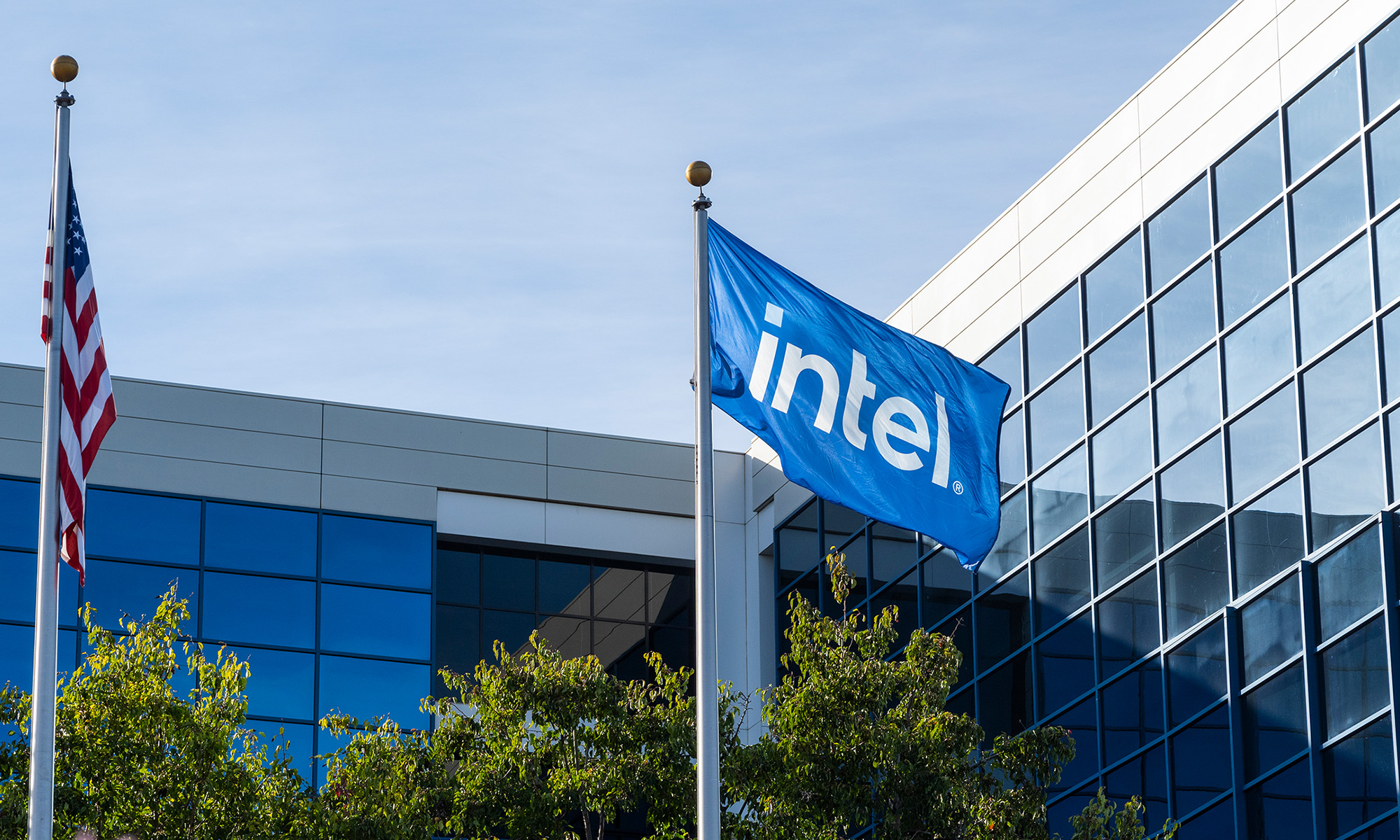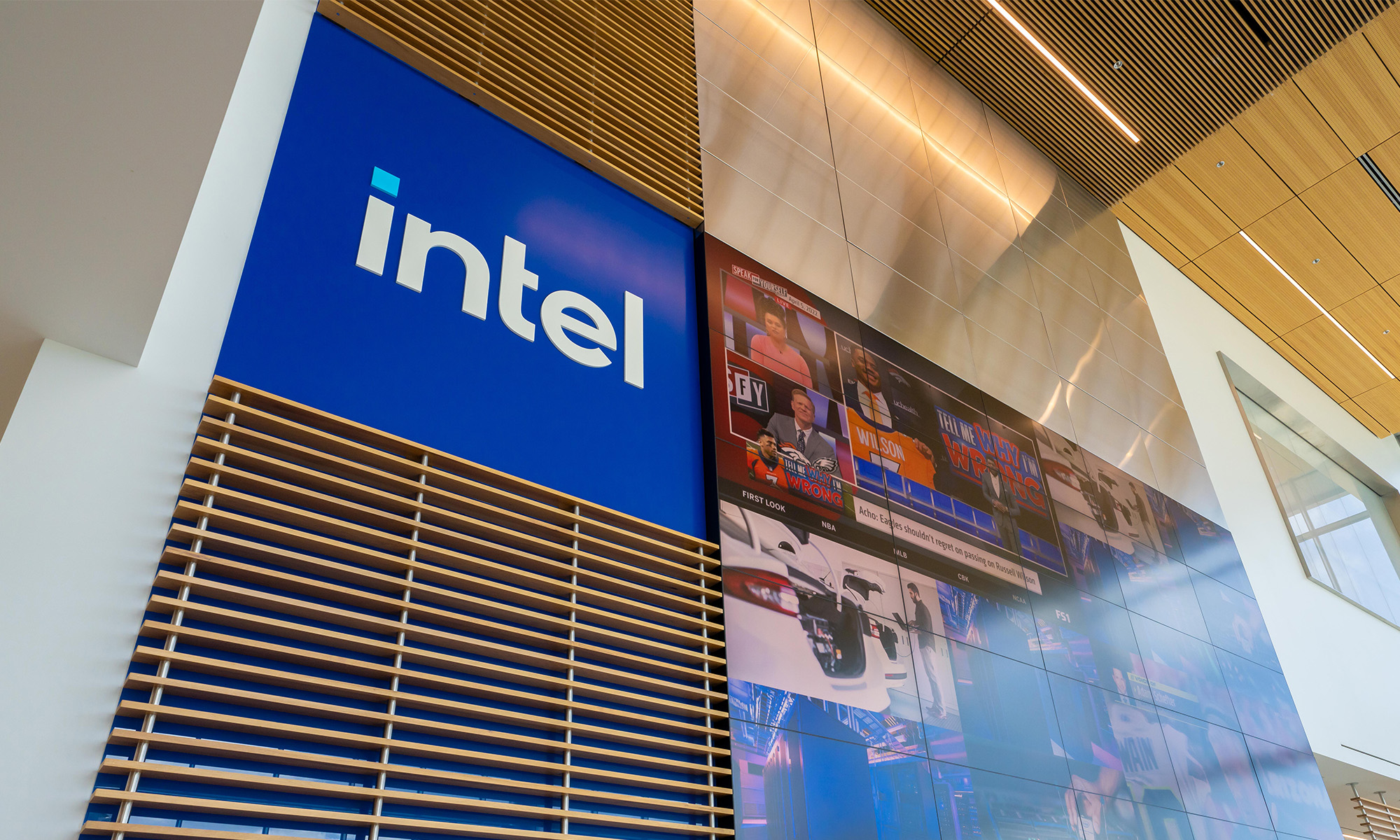The Internet of Things is a promising technology segment for companies and their investors. But nailing down the best Internet of Things, or IoT, stocks isn't always clear, and there are only a handful pure IoT plays.
But rival chipmakers Intel (INTC 2.34%) and Qualcomm (QCOM 1.22%) see the opportunity, and both are vying for the top Internet of Things position. Which of course begs the question, which is the best pick for Foolish investors?
Intel's inside opportunity
While some companies are still figuring out how to position themselves in IoT, Intel's already making money in the space. In Q3 2014 Intel made $530 million in revenue from the Internet of Things, up 14% year over year. That's much more than the company's mobile and communications group revenue ($1 million) and almost as much as its software and services revenue ($558 million) in the quarter.

Intel and the Open Internet Consortium want to bring IoT connections together on an open platform. Source: Intel.
One of Intel's IoT plays is through its small and powerful chips. Last year Intel introduced its small Quark processor, and over the summer the company teamed up with the city of San Jose to demo Intel's IoT gateway solutions and Quark processor. Intel's processors and gateways will tap into sensors in the city to track and improve the city's water quality, noise pollution and transportation efficiencies.
But that's not all Intel's working on. The company's also set up the Open Internet Consortium, or OIC, to help create standards for the Internet of Things. Right now Broadcom, Dell, Samsung and others are part of the alliance, which estimates there will be 212 billion connected "things" globally by the end of 2020. Intel wants to make sure it stays ahead of IoT innovation and being one of the founding members of OIC keeps them on top of standards, while opening up the possibility to work with other members to bring its new chips into their IoT devices.
Qualcomm's natural IoT progression
There's hardly another chipmaker embedded in mobile and so dominant in the space than Qualcomm. According to Strategy Analytics the company held 68% of global wireless baseband revenue in Q2 2014, and it only seems natural to parlay its strong wireless chip business into the Internet of Things.
Let's start with the intangible first. Qualcomm doesn't break out its Internet of Things revenue (like Intel does) so we don't know what the company's making off of IoT right now. But that doesn't mean it's not positioning itself in the space.
Last year Qualcomm turned over its AllJoyn protocol to the Linux Foundation and set up the AllSeen Alliance. The basis of the alliance is for tech companies to use the standards Qualcomm created with AllJoyn to allow different companies to connect their IoT devices to each other. The alliance includes 50 companies in all right now.

Qualcomm wants to use its AllJoyn standards to connect the Internet of Things. Source: Qualcomm.
Qualcomm's made it clear it won't make money from the AllJoyn platform, writing in blog post earlier this year that, "it is not Qualcomm's intent to monetize, through a patent licensing program, our code contributions to the AllJoyn open source platform made in the Alliance."
In that sense, Qualcomm's taking a similar approach to an open IoT platform Intel's taking. Both have created an alliance of companies that will use an open IoT platform, but I believe both are expecting to make their IoT revenue by making the chips that connect those companies to the platform.
If I have to pick ...
Between the two, I think Qualcomm is the better long-term investment for the Internet of Things for two reasons. First, the company absolutely dominates mobile while Intel has struggled. Internet of Things connections will work in the same way Qualcomm's mobile connections already do, just with smaller 'things' and even more connections. That means there's lots of potential for Qualcomm to easily transition its technology into IoT connections.
Second, I like Qualcomm's position with the AllSeen Alliance. Sure, Intel's got its own open platform and it could just as easily take off. But I have a hard time betting against Qualcomm's know-how in connecting things to the Internet and taking that knowledge to help other companies do the same.







